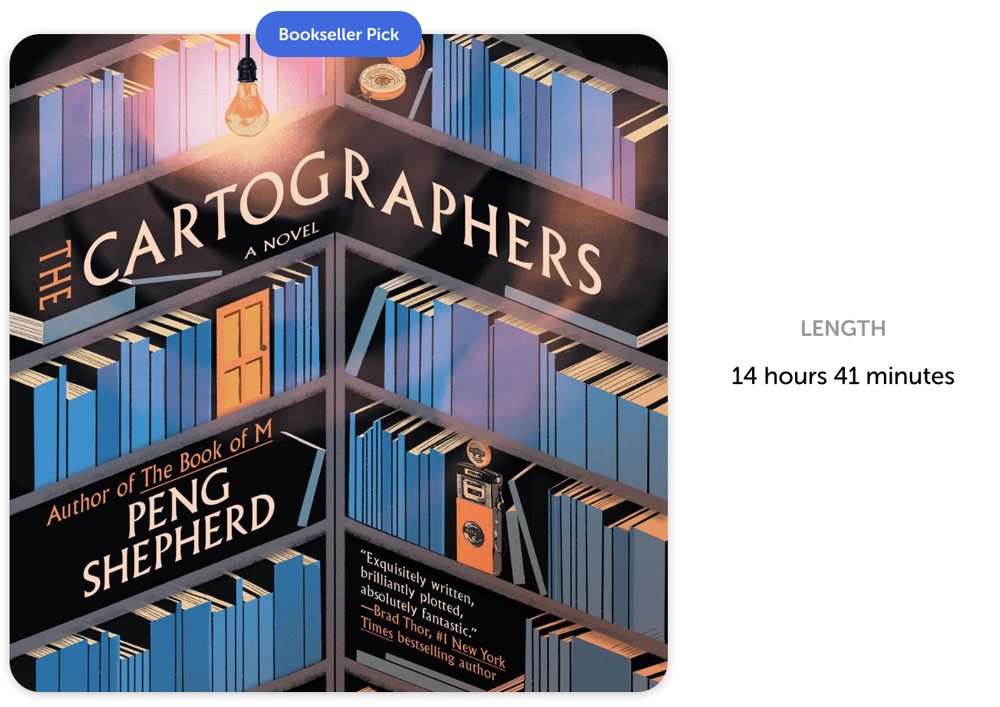As I get ready for my first solo in-person bookstore event in more years than I care to acknowledge, I’ve been thinking about how much our own experiences and mindsets affect our reaction to the books we read. About ten years ago, I was soooo excited to lose myself in a young adult fantasy by an author I’d recently met… but after only a few chapters I put it down, disappointed. Two years later, I picked it up again—and devoured it. The sentences and the plot and the characters were all exactly the same; it was only my own head-space that was different.

What sparked that memory (and this post) was a far more recent re-read: the audiobook version of The Cartographers, by Peng Shepherd. I first listened to it last spring, while stripping Matsya’s varnish, and it provided the perfect level of distraction for a rather monotonous spring maintenance job. There was absolutely no deadline for finishing the story; in fact, the longer it took me to get to The End, the better “bang for the buck” the recording provided.
For those of you who haven’t read it, here’s a very quick summary (without spoilers): The daughter of an expert cartographer (who is also a cartographer herself) discovers an old highway map among her dead father’s possessions… and has to figure out why it meant so much to him.
When a member of our local book group suggested The Cartographers for our October gathering, I was excited to dive back into a book I’d enjoyed so much the first time. Six months is definitely long enough for my brain to lose the details of a novel, so I wasn’t worried I’d find it boring even though I knew how it ended. And I was freshly able to appreciate the steady dropping of breadcrumb clues that the author left for the reader.
But this time, there was that looming deadline: must finish by next book club meeting. And without the busy hands of a time-consuming boat project, all those densely detailed descriptions seemed to go on for far too long. Even the first time through, the conclusion of each scene was usually somewhat predictable; now I found myself willing the author to “get to the point already!”
Again: same great plot, same meaty characters, same delicious sentences—but a drastically different head-space.
There’s no solution to this, of course. But as I watch a fifth book go out into the world, my own varied responses to the same story are a timely reminder: how readers react to my stories (whether fact or fiction) will always be affected as much by what’s going on inside their heads as by what’s actually between the covers. The trick is to write something timeless, the “truth” as I perceive it—and then to enjoy the sparks of whatever reader responses that brings.
Have you reread a book recently (maybe even one I wrote!) and had a totally unexpected reaction? Share your thoughts in the comments below, or send along an email.
And don’t forget to join sailors, history buffs, and happy-ending-lovers for a discussion about 100 Years of Gold Stars (and my other books) at Curiosity&Co this Saturday. 430pm, and it’s free; register here!
For more thoughts about audiobooks (including proper verb usage), read Audiobooks: A World of Their Own